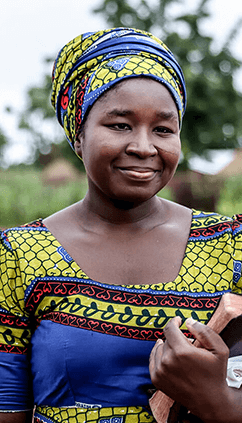By Bobby Thomas
The moment I landed in Kathmandu, Nepal’s bustling capital city, I felt an undeniable sense of adventure and excitement. The city was a chaotic mix of honking cars, bikes, and even cattle roaming the streets. The hustle and bustle of the traffic made me feel a little unnerved, but I was eager to explore everything that Nepal had to offer.
As I made my way to the hotel with Ram Hari, the national director of Bible League Nepal, he told me how the pandemic had affected the country. And indeed, I could see the effects of the pandemic everywhere. With many people losing their jobs and tourism coming to a halt, Nepal was forever changed. But despite the challenges, the people of Nepal remain warm, welcoming, and down-to-earth.
Coming from my home country of India, Nepal felt familiar, yet wonderfully distinct. I was struck by how the Nepali people’s resilience and strong sense of community persists despite their hardships.
Pastor Gangaram
As we arrived at the Church of the Nazarene, we were greeted in the customary Nepali way—“Jai Masiki,” which means “Praise the Lord.” Pastor Gangaram and his congregation welcomed us with open arms.
Inside the church, he explained, “I was the first person in our family to come to faith.” Today, his church has grown to around 200 members. I was struck by the beautiful building that stood in contrast to the poverty surrounding it.
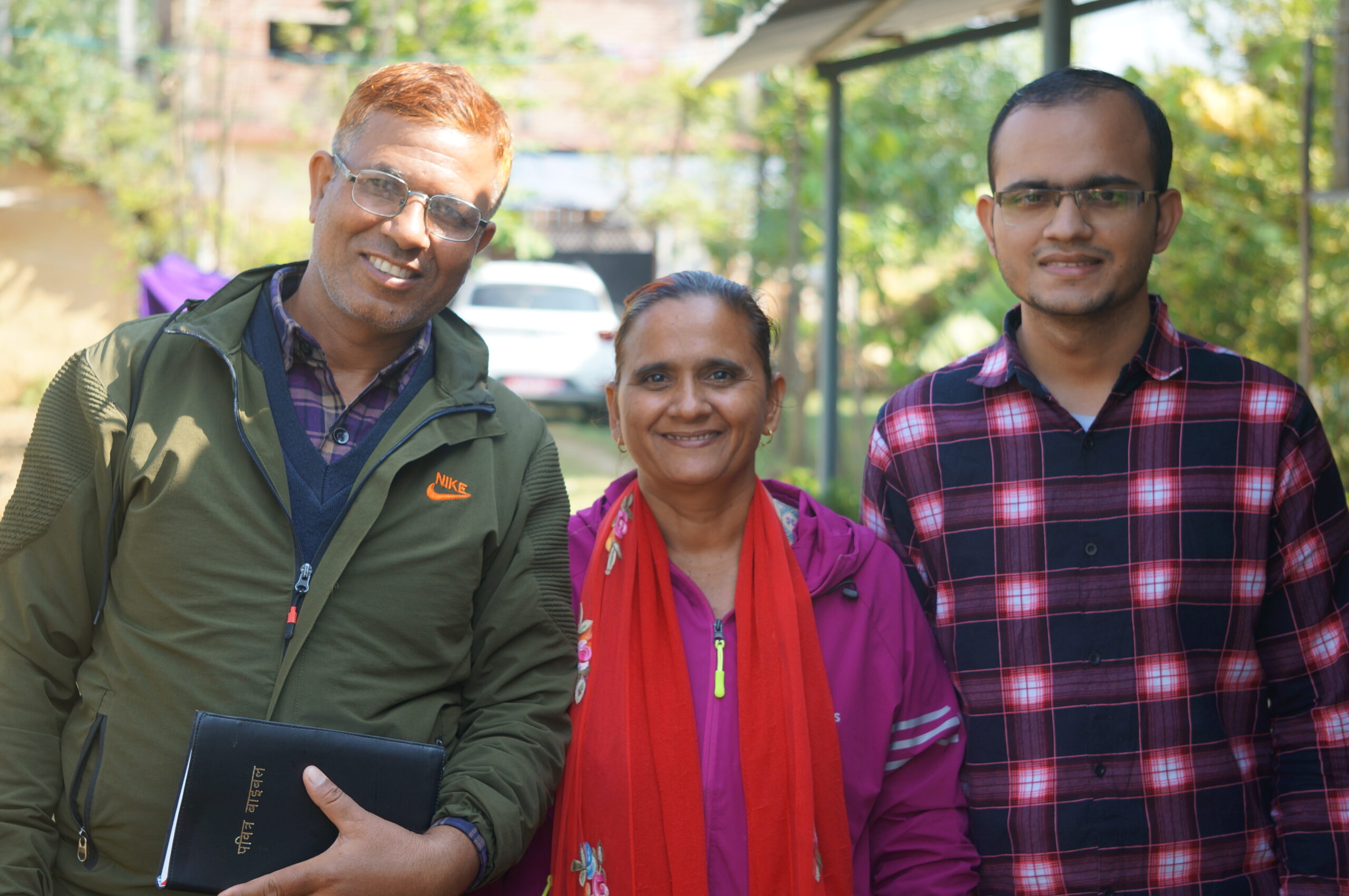
Gangaram (left) with his wife and son.
Gangaram, his wife, and their two grown children live in a modest mud cottage with a thatched roof just a few meters away. The pastor showed me around his home and told me about his life. They have nothing more than the bare minimum for survival. In rural Nepal, conveniences like a refrigerator, washing machine, or dishwasher are considered a luxury.
Gangaram grew up in a Hindu family in the rugged mountains of Nepalganj in mid-western Nepal. His journey to the Lord began during the civil unrest in Nepal, a nationwide war between the Nepalese royal government and the Communist Party of Nepal. Gangaram was forced to flee his homeland because of the war.
During this trying time, he heard the story of Jesus. “A brother preached the Gospel to me and I accepted it with open arms,” he said. “That moment was a turning point in my life.” His journey was far from easy, as he faced intense opposition from his family and the villagers when he began the Gospel work.
A certain passage from the Book of John had a powerful impact on Gangaram. “I used to love Hinduism and Buddhism; I memorized many passages of the texts,” he says. “But after reading in the Bible that ‘God is spirit’ (John 4:24), it changed my thinking significantly!”
He returned to his hometown with a newfound love for God and a fervent desire to share the Gospel with everyone he met. He went door-to-door, inviting people to the church, especially those struggling with poverty, illnesses, and other challenges.
Gangaram considers the villagers “needy people” patiently searching for a breakthrough. Many village residents migrated from the mountains to the plains in search of a better quality of life. Moreover, the plains had access to better schools, healthcare, shops, and other advantages. That was the means through which God led them to the church.
Gangaram’s efforts to evangelize were met with severe resistance. His relatives forced him and his family out of the village. They even burned their Bibles and hurled filthy abuses at them. “This is a foreign religion,” they accused the zealous pastor, who didn’t buckle under pressure.
Despite hostility from some in the local community and family members, the church continues to expand. Gangaram has not stopped going door-to-door and inviting people to the Project Philip Bible studies. Once people begin to slowly read God’s Word, they notice changes in their own lives.
Even after they become Christians, cultural and traditional ties still appear to exert a vise-like grip on their lives—at least from what I could tell. This is where studying God’s Word becomes crucial for experiencing true deliverance in their lives. When I brought up the topic of culture, Gangaram was quick to point out that he had a hard time breaking free from the deeply ingrained cultural and traditional practices and that he needed prayer and Bible study to do so.
Despite the obstacles, the Church in Nepal continues to grow and thrive, with Project Philip and Bible-based Literacy playing an instrumental role in bringing people closer to God.
Leading through Literacy—Shobika’s Journey
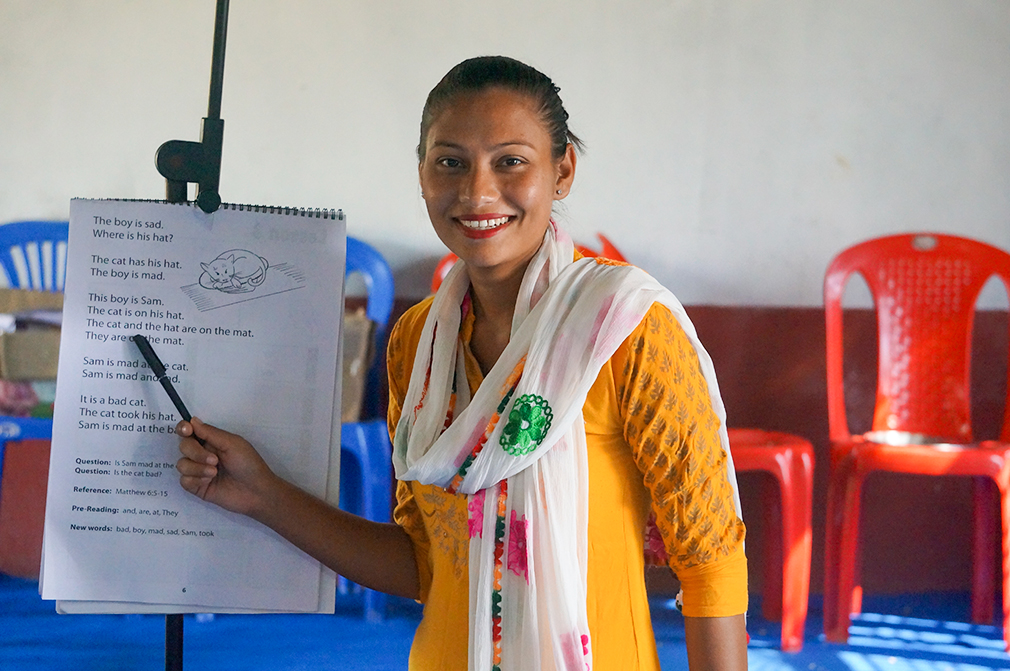
Shobika sees herself as more than a teacher; she hopes to be a mentor.
Shobika is an inspiring teacher who oversees Bible-based Literacy in Pastor Gangaram’s church. Her passion lies in educating and empowering young girls and boys in their preteens. Interestingly, Shobika comes from a Hindu family, and her father works abroad, a common trend in Nepal due to poverty and unemployment. Like in Gangaram’s story, Shobika’s father discovered the Gospel outside his home country and returned home to share it with his family, becoming the first to receive the Good News.
Shobika leads a class of seven beautiful girls who are eager to learn. They greet her with “Jai Masih.” Despite their shyness and reserved demeanor, the girls muster all their courage to ask me, “Sir, can we take a group photo with you?” I felt humbled by their request and replied, “Of course.” Behind their lovely smiles, however, lies a tragic story of pain and sorrow. Two girls come from divorced families and live in poverty, with no father to care for or provide for their needs. But despite their struggles, they come to class eager to learn and grow.
As we sat in a circle with the students, Shobika shared her story of how she came to know Christ. Her own journey to the faith had not been easy, but she was grateful for the opportunity to teach these young girls about the love of God. Her voice choked with emotion when she shared her struggles of not having a house and having to share a room with a friend, her husband, and her two-year-old son. Her husband, a church member, drives an autorickshaw for a living.
“I love to teach. I dreamed of speaking English and teaching children from childhood,” Shobika said.
She referenced Acts 8 and asked, “How can they learn and know God without someone telling them about the Bible? The nicest part about teaching is I have learned a lot.”

Shobika (back right) with her class.
Shobika’s commitment to the girls goes beyond just teaching them literacy skills. She sees herself as a mentor and role model who can help them navigate life’s challenges and stay true to their faith.
The student’s personal experiences were inspiring to hear. Shobika said, “When they first walked into class, they knew nothing about Jesus or the Bible. Now, they are all devoted Christians with big dreams and a love for the Bible.”
As we wrapped up our time together, I couldn’t help but feel inspired by Shobika and the girls in her class. Through their commitment to learning and growing in their faith, they are shining examples of what it means to have faith in God.
A Desolate Land and a Jovial Pastor
“Can any good possibly come from this place?” I found myself questioning what could be found in the dry, barren land we drove through that had no proper roads or vegetation. The area was dusty and rundown, with evidence of poverty visible in the crumbling buildings. Pastor Benjamin is a jovial and welcoming person anyone would want as a friend. After he became a Christian, he changed his name to Benjamin—a normal practice for new believers here. He is short and soft-spoken, but his words carry weight.
As his story unfolded, I sat there in awe, listening intently to every word. He had lived a life full of hardship and struggles, yet his faith in God had never wavered. His life story fascinated me as he attempted to describe the unimaginable problems and unexpected turns that life held for him. In numerous statements, he acknowledged God’s hidden guidance. He said, “This wouldn’t have been possible without God.” And it’s so true!
Beginnings
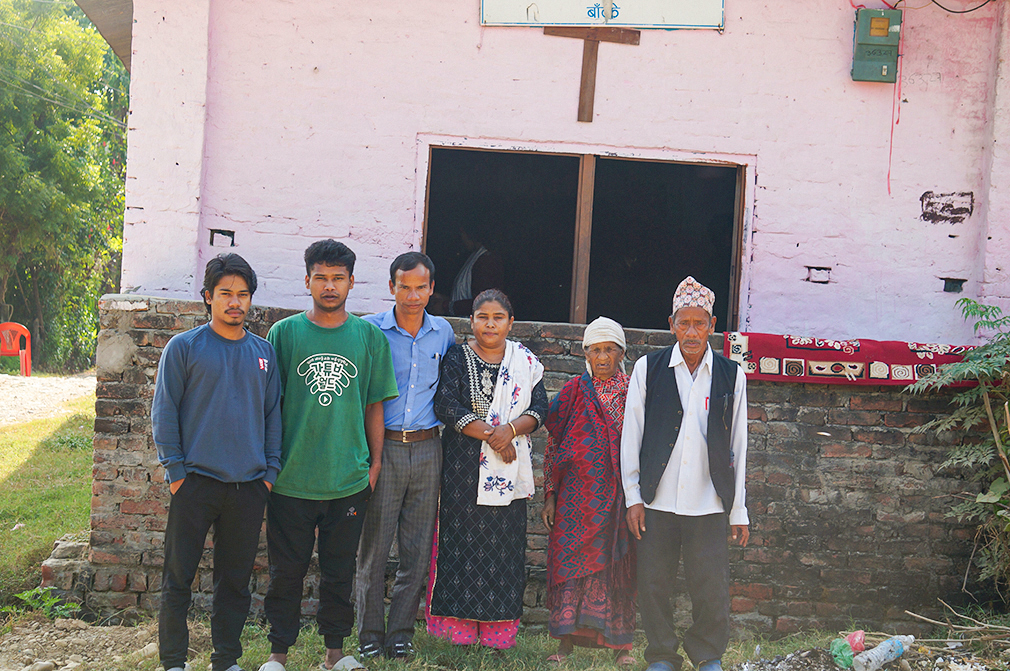
Benjamin and his family.
“My parents lost seven children, and then I was born,” Benjamin begins his heartbreaking tale. Despite their religious practices of performing pujas and offering goats and sheep, his parents found no solace. At that time, conversion was prohibited, but two evangelists managed to sneak into his parents’ village and share the Gospel with the family. It changed their lives. Benjamin was the last of their children to be born after they converted to Christianity.
But their newfound faith came with consequences. Benjamin’s father was arrested, his only crime being that he was a follower of Jesus. The village council grilled and questioned him, “You have embraced the religion of cow-eaters. Will you forsake this Western religion or leave the village?”
“No, we will not leave Jesus,” he replied boldly.
“Then we will not allow you to live in our village.”
They were expelled from the village.
Benjamin’s parents walked for 10 days to another district to the house of a pastor who gave them shelter, where they stayed and grew in faith. That sounded incredibly heroic. I was reminded of the words of Jesus in the Gospel of Matthew, “You will be hated by everyone because of me, but the one who stands firm to the end will be saved” (Matthew 10:22 NIV).
Education and Ministry
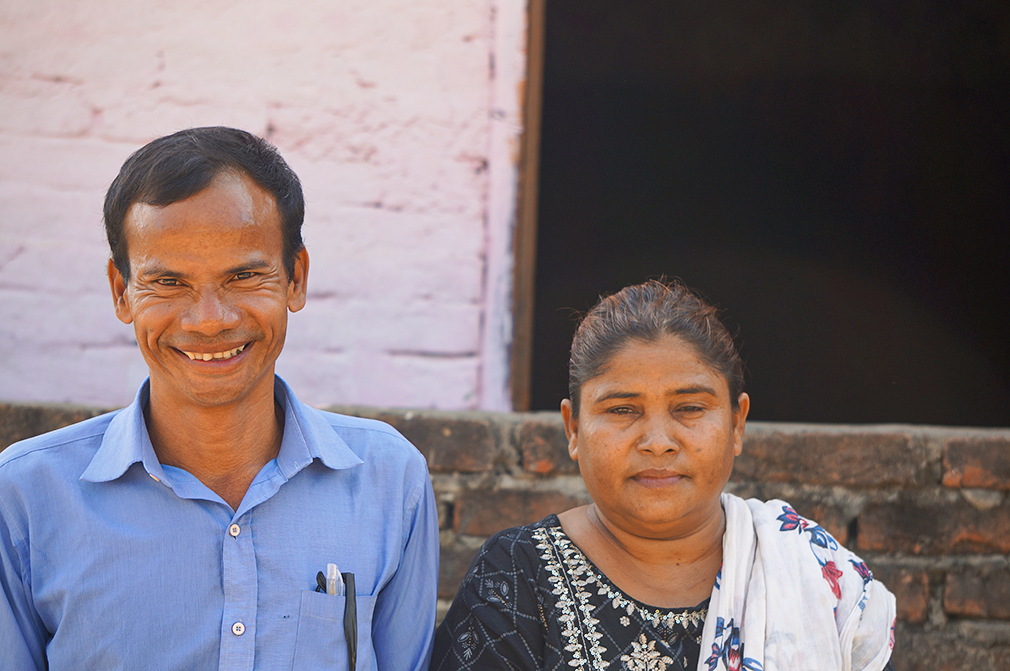
Benjamin joyfully serves the Lord even though he faces opposition for his faith.
Benjamin grew up during this struggle; his education was affected as he was in and out of school. He was expected to contribute financially to his family from an early age. He helped support them by working in a family business.
It felt like a biblical contradiction to me that the pastors and believers I have met are among the poorest people yet among the most cheerful and pleasant.
A pastor asked Benjamin, “Will you do ministry?” His enthusiastic response set him on the path of learning about God and helping His people. He studied in a Bible school, which initially laid the foundation of God’s Word. However, he had to leave his parents and travel to India in search of work because of financial difficulties. He washed dishes and cooked Chinese cuisine in a hotel.
One day, a pastor’s wife told him, “Son, there is no point in you staying here and working like this. I have seen a vision of you; you should return to Nepal and start doing ministry there.”
He heeded her advice and returned to Nepal. With his meager savings, he started a “Believer’s Restaurant.” What a lovely name for a dining establishment!
Impact and Legacy
His experience of working in India proved useful. God began blessing the restaurant, and the business grew as the years passed. He started a church adjacent to the restaurant. A pastor from Bible League introduced him to our Church Planter Training program. The ministry got off to a great start. People started coming to the church in big numbers. As it grew, he left the restaurant business and started focusing on the church.
“I have been in the ministry for the last 15 years; since then, our church has grown to more than 200 members,” he says with humility and appreciation. When asked how he built this church, he was quick to credit the humble believers who generously donated their land and money within their limited means, and God blessed them.
One of the believers gave a little plot of property, and Benjamin rode me over there on his bike to show it to me. However, they don’t have the money to construct a church building. We both lifted our hands and prayed for God to provide resources to build; the existing hall cannot contain the growing number of people.
Despite government crackdowns on evangelism, the Nepali Church continues to flourish. If reported, Christians who gather to worship will be arrested. Many such cases have happened.
One reason for the growth is that people are finding deliverance from evil spirits, childlessness, and healing from sickness in the name of Jesus. Some come to find a way out of poverty.
Pastor Benjamin, his family, and their three sons serve the Lord. They are a family devoted to the Lord! They may not have much in the way of material wealth, but they have an abundance of God’s love. He preaches in the neighboring villages that Jesus Christ is the Savior of all.
As we said our goodbyes, I felt humbled by the incredible work that Benjamin is doing. He has proven that anything is possible with faith and determination. The barren land I had initially dismissed is a thriving community, thanks to one man’s unwavering belief in a faithful God.
The Church in Nepal continues to grow and thrive amid persecution. From my conversations with scores of pastors and believers, I can tell that many people are searching for answers to their problems and are finding them in Jesus Christ. My trip to Nepal was an eye-opening experience, and I left with a renewed appreciation for the power of the Gospel to transform lives and communities.
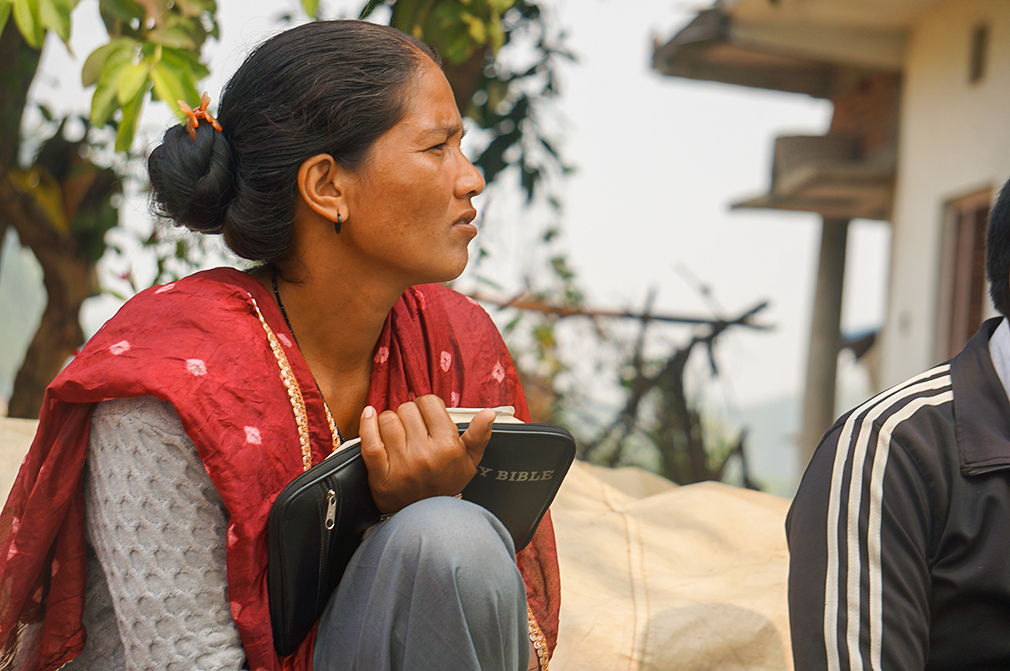
Bobby Thomas is a Communications Manager located in India. He travels across Asia to tell stories of brave believers who are serving the Lord.




